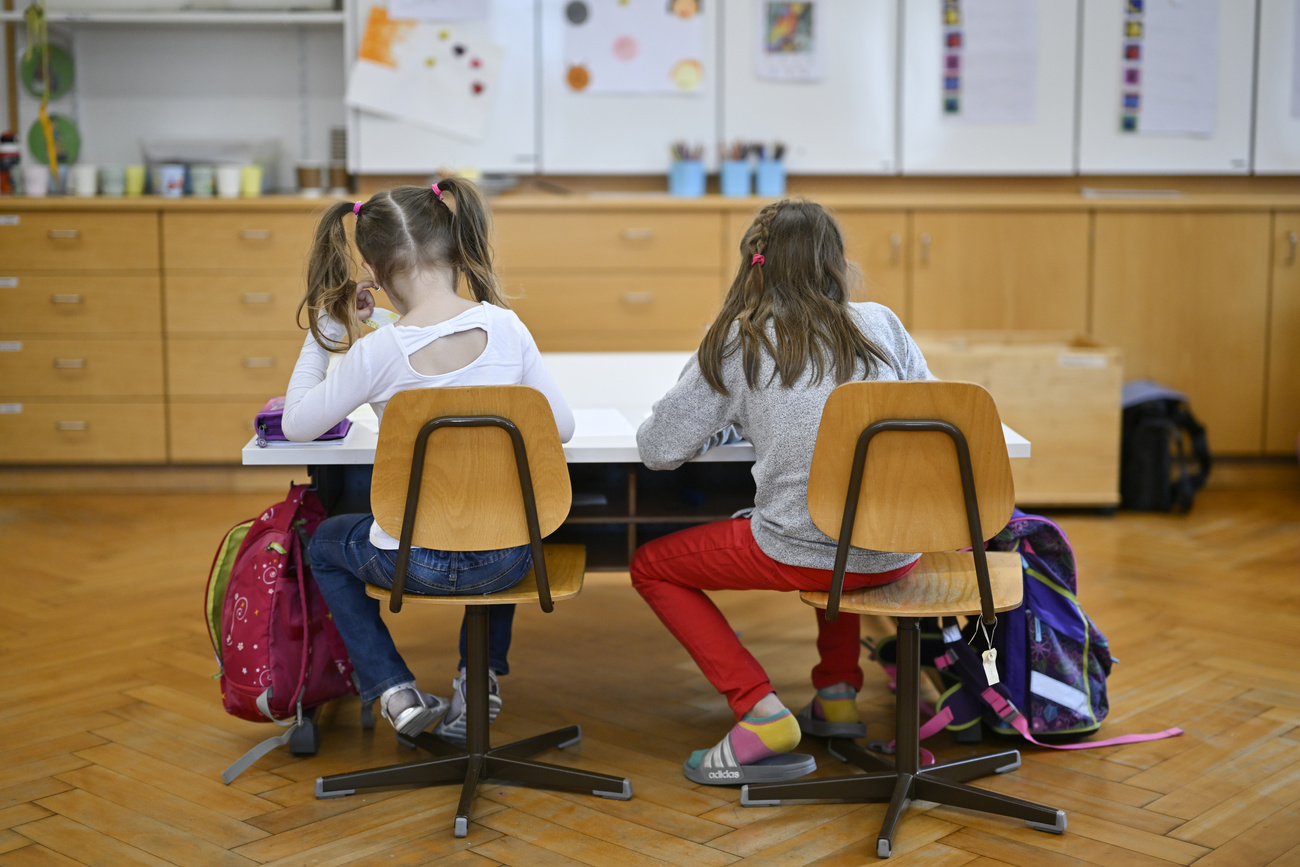Why the Swiss school system is so successful

The Swiss education system is considered to be of high quality and comparatively inexpensive. But what makes it stand out, and why does the Swiss population trust the public school system more than private schools? A look at the structures, strengths and challenges.
In Switzerland, children generally start school at the age of four or five. Public primary school is free in the Swiss school system and comprises eleven compulsory school years, the first two of which are kindergarten.
The Swiss education system performs well in international comparative studies. And in contrast to many other countries, the proportion of private schools in Switzerland is relatively low.
This is directly linked to the high quality of the public school system. “Historically, the system has been spared disruptions and been able to develop continuously,” says a spokesperson for the Swiss Conference of Cantonal Ministers of Education (EDK).
Swiss citizens reject free choice of school
Results from votes also show that the Swiss school system enjoys people’s trust. Voters have repeatedly rejected initiatives calling for the free choice of school. During compulsory schooling, children are assigned to a public school, although parents are free to send them to a recognised private school if they wish.
The vast majority of the population see the private system as a supplement for specific needs rather than as an alternative to the public system. However, there are exceptions: for example, on the right bank of Lake Zurich, where many expats live, one in ten children attends a private school, usually in English.
A federal system with local roots
The decentralised structure is key to the Swiss education system’s success. Each of the 26 cantons manages its own school system.
This decentralisation leads to a high level of acceptance among the population. According to an OECD study, 76% of Swiss citizens are satisfied with their education systemExternal link – a figure that, at a global level, only Finland surpasses.
Swiss school system: Vocational training system a model for success
Another outstanding feature is Switzerland’s dual vocational education and training system. “In no other country do so many young people complete dual basic vocational education and training after compulsory schooling,” says the EDK spokesperson. “[The dual system] teaches young professionals labour market-related skills, knowledge and attitudes in a variety of settings
While in many countries the focus is on academic education, in Switzerland around two-thirds of young people complete basic vocational training. This combination of theory at a vocational school and practice in a business setting enables a seamless transition into the labour market and contributes to a comparatively low youth unemployment rate in Switzerland.
This principle continues at the tertiary level. After completing an apprenticeship, students can pursue their education at a technical college. The permeability of the education system is a particularity of Switzerland: doing an apprenticeship does not exclude a person from studying at university later on. After a vocational baccalaureate, the path to university is possible with a transitional examination, the so-called passerelle.
Efficiency and costs
From an international-comparison perspective, the Swiss school system offers high quality at fairly moderate costs in macroeconomic terms. According to the Swiss Education Report, the public sector invests around 5.6% of gross domestic product (GDP) in education. This is slightly higher than the OECD average of 4.9%.
Swiss pupils regularly score well in the global PISA study, which measures the skills of 15-year-olds in the areas of reading, maths and science. Although there have been slight declines in recent years, Switzerland remains in the top group overall.
Equal opportunities and pressure to perform
Despite its strengths, the education system faces criticism. Studies show that children of academic parents are more likely to attend university than those from non-academic households.
Those who come from educationally disadvantaged households – particularly those whose parents were born abroad – have significantly fewer chances in Switzerland.
To address this, the Conference of Cantonal Ministers of Education proposes measures such as early support, individual language support and integration support, targeted career and study counselling and parental involvement.
“Perhaps the greatest, and at the same time permanent, challenge for schools is dealing with the heterogeneity of pupils,” says the EDK spokesperson. This mix concerns both the different performance levels and the diverse social and cultural backgrounds of pupils, which must be addressed individually in class.
A system that sets an example
The Swiss education system combines quality with flexibility. And it works: the Swiss population has never been as educated as it is today; according to the Federal Statistical Office, the proportion of university graduates has more than doubled since 1996.
The gender gap is also narrowing, with women of the younger generations catching up with, or overtaking, their male counterparts. Another feature is the high graduation rate after compulsory schooling. “Just over 90% of all young adults up to the age of 25 obtain a qualification at upper secondary level,” says the report of the statistical office.
Editiert von Marc Leutenegger; Übertragung aus dem Englischen mithilfe von Deepl/gw

In compliance with the JTI standards
More: SWI swissinfo.ch certified by the Journalism Trust Initiative













You can find an overview of ongoing debates with our journalists here . Please join us!
If you want to start a conversation about a topic raised in this article or want to report factual errors, email us at english@swissinfo.ch.